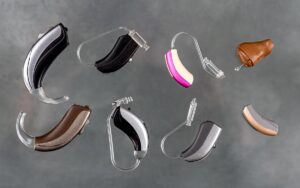Are you being kept awake by ringing in your ears? You don’t have to just live with it. Here are some tips for quieting that aggravating, persistent noise so you can get some sleep.
Your sleep cycles can be significantly impacted by moderate to severe tinnitus. During the daytime, tinnitus is often less noticeable because you’re distracted by noise and activity. But tinnitus can seem louder and more stressful at night when it’s not as loud.
Fortunately, there are a variety of strategies you can use to fall asleep easier.
Below are 5 tips to falling asleep in spite of your tinnitus.
1. Quit Fighting Against The Noise
While this might seem overwhelming, paying attention to the noise really makes it worse. This is partly because for most people a rise in blood pressure can worsen tinnitus symptoms. So the more frustrated you get dwelling on it, the worse you are probably going to feel. You can make the sound fade away a little by thinking about something else and utilizing the following techniques.
2. Follow a Nighttime Schedule
Condition your body to feel sleepy at the right time by creating healthy sleep habits such as dimming the lights, winding down at least a half an hour before you go to bed, and going to bed at the same time every night. This will make it much easier to fall asleep when you’re ready.
Stress has also been linked to tinnitus. It also helps to develop habits to lessen stress before bed.
- Staying away from drinking alcohol
- Dimming the lights at least an hour before bedtime
- Reading a book in a peaceful room
- At least a few hours before bed, steer clear of eating
- Listening to quiet sounds or relaxing music
- Turn down the temperature in your bedroom
- Doing yoga and stretching
- Doing a short meditation or a deep breathing exercise
- Concentrating on thoughts that make you feel happy and calm
- Bathing
Getting into a predictable schedule before going to bed helps you shift away from the stresses of the day into night and trains your body to transition into sleep.
3. Pay Attention to What You Eat
Artificial sweeteners and alcohol are well-known triggers for tinnitus. If you discover, after tracking your diet and symptoms, that certain foods trigger or worsen your tinnitus, make it a practice to avoid them. Caffeine is also a trigger so at least avoid drinking it in the afternoon and at night.
4. Avoid Common Causes of Tinnitus
Ringing or other noises in your ears can be caused by many things. Addressing the cause can help avoid tinnitus or make it better. You can do several things to help:
- Go for your annual examination
- Get help for underlying conditions like high blood pressure
- Use ear protection
- To determine whether one of your medications is causing tinnitus symptoms ask your doctor
- Use headphones at a lower volume instead of earbuds
- Get treatment for anxiety or depression
- so that you can identify whether your subjected to loud noises, and how to reduce that exposure, you need to assess your lifestyle
You may be able to better manage it if you can discover what’s causing the ringing.
5. Make an Appointment to See a Hearing Specialist
A professional hearing test can help you find potential solutions as well as identify what may be causing your tinnitus. Professionals can help you handle your tinnitus in several ways such as:
- Fitting you for hearing aids made to cancel out the noise
- Enrolling in treatment to train your brain to not hear the tinnitus
- Suggesting cognitive behavioral treatment to deal with thought patterns shown to make tinnitus worse
To speed up healing and sleep better at night, seek professional help. Schedule an appointment with your hearing care professional to find out if you can get some help with your tinnitus.





